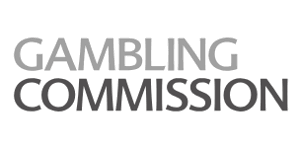Gambling Commission Strategy Three Year Strategy To Tackle Problem Gambling
 The Gambling Commission has come up with a three-year strategy that it believes will tackle problem gambling head on, reducing problem gamblers faster than is being managed with the current strategy. Part of the strategy is to bring regulators, charities, businesses and the various health bodies together to attempt a coordinated national strategy.
The Gambling Commission has come up with a three-year strategy that it believes will tackle problem gambling head on, reducing problem gamblers faster than is being managed with the current strategy. Part of the strategy is to bring regulators, charities, businesses and the various health bodies together to attempt a coordinated national strategy.
Problem gambling has become more and more of an issue that the various gambling companies are trying to find ways of dealing with. At the start of 2019, for example, it was revealed that the GamStop system, which was designed to help problem gamblers exclude themselves from betting, had major flaws.
Gambling companies have attempted to own the problem by voluntarily introducing a ban on gambling adverts, this coincides with another directive to not use any young looking role models in ads, but this new strategy is intended to go even further.
Betting Companies Agree To Change Advertising
 Betting companies know that they face an issue when it comes to their reputation and the public, so at least two are attempting to lead the way when it comes to changing perceptions about them. Both GVC and William Hill have confirmed that they will stop sponsoring football shirts, with GVC being the owner of Coral, Ladbrokes and Gala. GVC have also said that they will no longer pay for adverts on the hoardings that surround football pitches, either.
Betting companies know that they face an issue when it comes to their reputation and the public, so at least two are attempting to lead the way when it comes to changing perceptions about them. Both GVC and William Hill have confirmed that they will stop sponsoring football shirts, with GVC being the owner of Coral, Ladbrokes and Gala. GVC have also said that they will no longer pay for adverts on the hoardings that surround football pitches, either.
Whilst GVC’s self-imposed restrictions go some way to limiting the influence that gambling companies will have on sports fans, they don’t quite go as far as some would like. They have proposed a ban on advertising on TV during live and repeated sports events, for example, but they do not think that horse racing should be including in that. This is perhaps because the sport is seen as being hugely important to the profitability of the gambling industry.
Companies Trying To Cope With FOBT Reduction
 It all comes at a tricky time for betting companies, which are struggling to cope with the reduction of stakes on Fixed Odds Betting Terminals at the same time as they are being hit with an increase in the Remote Gaming Duty from 15% to 21%.
It all comes at a tricky time for betting companies, which are struggling to cope with the reduction of stakes on Fixed Odds Betting Terminals at the same time as they are being hit with an increase in the Remote Gaming Duty from 15% to 21%.
Both Betfred and Paddy Power tried to get around the reduction by introducing alternative games with their own high stakes, such as one involving computerised cyclists that could accept bets of up to £500. They were issued warnings by the Gambling Commission, however, and withdrew the machines from their shops.
It does indicate that they’re trying to find ways to limit their exposure, however, at a time when the various governing bodies are cracking down on the behaviour of the biggest gambling companies.
William Hill found themselves at the receiving end of the Gambling Commission’s wrath, for example, when they were fined £6.2 million when they failed to live up to their social responsibilities and were found guilty of breaching the anti-money-laundering regulations at the start of 2018. That came a year after 888 were fined £7.8 million for their own misdeeds.
Why There’s A Need For A New Strategy
 At a time when the NHS believes that gambling addiction is affecting around 430,000 people and is attempting to draw attention to the link between mental health issues and gambling problems, it’s no surprise that there are calls to find ways to tackle the problems head on. Marc Etches, the head of the problem gambling charity GambleAware, has warned that as many as two million adults have suffered some form of gambling related problem and that it can even end in suicide.
At a time when the NHS believes that gambling addiction is affecting around 430,000 people and is attempting to draw attention to the link between mental health issues and gambling problems, it’s no surprise that there are calls to find ways to tackle the problems head on. Marc Etches, the head of the problem gambling charity GambleAware, has warned that as many as two million adults have suffered some form of gambling related problem and that it can even end in suicide.
Meanwhile Mims Davies, who is the Minister for Sport and Civil Society, has declared that the gambling industry should put ‘protecting people from harm’ at the top of their list of priorities because ‘addiction can ruin lives’. Rosanna O’Connor of Public Health England echoes those sentiments, saying that figuring out how to respond to the harms of gambling and working out to understand them better is an ‘urgent’ matter.
The Chairman of the Gambling Commission, William Moyes, also thinks that it’s important to move away from the current system of simply counting the problem gamblers and instead try to understand the experiences of those being harmed.
What The Strategy Will Include
 The proposed strategy will focus on researching the effects of gambling and concentrating on gathering as much information as possible. A national database is already being built up and the Gambling Commission is considering introducing a National Research Centre into the topic.
The proposed strategy will focus on researching the effects of gambling and concentrating on gathering as much information as possible. A national database is already being built up and the Gambling Commission is considering introducing a National Research Centre into the topic.
The National Strategy is being devised with the aim of ‘moving faster and going further’ when it comes to the reduction of harms caused by gambling, requiring a wide range of sectors to get involved in order for it to be successful.
The first thing on the list is to both identify the interventions that work and also develop and understanding of why others aren’t very effective and need to be stopped. This will include introducing universal measures that the entire population will benefit from as well as opting for more selective measures that will benefit all at-risk groups and some measure specifically aimed at at-risk individuals.
Gambling related harms can cause problems for people’s health, their relationships and their work and employment, which needs to be measured in order to figure out how to best deal with things.
The National Strategy includes six different steps, which are as follows:
- Education and Prevention
- Support and Treatment
- Regulation and Oversight
- Collaboration of All Aspects of the Industry
- Evaluating What Works
- Improving the Links Between Policy and Research
They National Strategy is being designed to gradually make progress towards having a set of support and treatment options that can be implemented nationally and will take into account the needs of both future users as well as those currently in need of help.
It’s believed that the most crucial rule will fall to the regulators and other bodies that are accountable for providing oversight and such like, as it will be their jobs to reinforce the strategy once it’s being implemented.



